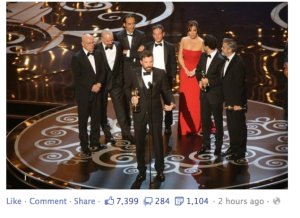Why Should You Avoid Reality Shows Based On Children?
Why You Should Avoid Reality Shows Based On Children?
 Let’s admit, most kids are cute and they are entertaining. Their entertainment value is almost directly proportional to their cuteness, which is more than a workable currency in the prime time television industry. The other fact, which the industry is not quite concerned about, is that kids are not fit to give informed consent.
Let’s admit, most kids are cute and they are entertaining. Their entertainment value is almost directly proportional to their cuteness, which is more than a workable currency in the prime time television industry. The other fact, which the industry is not quite concerned about, is that kids are not fit to give informed consent.
It has almost been a month since I angrily stormed out of the sets of a kids reality show based on the age group of 12 or so. I was hired by the production house (I had not signed the contract yet, I was to sign it the next day) to be the psychological counselor for the kids and their parents facing elimination and other hardships of competition.
This morning when I answered an unknown number from Delhi, I was reminded of that day once again. On the other side of the phone was the same mother of a participant whom I had to placate and pacify after she saw the way her son who had just been eliminated from the reality show was being treated compared to the kids who were still part of the game. The other eliminated kids and their parents had the same beef with the production house.
She told me that the reason she’s calling me is because her son has still not been able to get over the trauma he suffered at the hands of both, the production house and her own. She felt really guilty of having put her son through such an unnecessarily excruciating experience regardless of her good intentions of giving her son, an experience she thought would enrich him and make him worldly. Since then a few other parents of the kids who participated in the show have also spoken to me.
Their fears were common, that now the show will soon be aired, as the promotional teasers have started coming on television, and they and their children will go through the same trauma they underwent during the shooting of the show.
I have chosen to write about this topic for two major reasons. The first being that for quite some time now, we’ve been watching an onslaught of reality shows featuring really young kids and it cannot be stressed enough the kind of serious effects that participation in shows like these can have on a child’s psychology. This is not an over protective parent in me that “thinks” this, it is a concern shared by psychologists worldwide. The second major reason being the personal experience I had on the sets of this reality show. Hence I want to distance myself from them because of the ethical conflict I would have continued to have working there.
A child’s mind is very different from that of an adult in a way that the higher faculties of understanding and judgment, that we take for granted, have yet not fully developed in a child’s brain when he or she is thrust into an extremely competitive environment. A child by himself does not understand failure at a task as failure of self; it’s a social learning. A child’s natural tendency is to try things and then move on to other things if he is not able to do what he first chose. However in settings like that of a reality show where they are taught the meaning of national success and hence failure as a corollary, the child cannot make the distinction between his failure at a task and his failure as a person.
In shows like these the child is caught between the expectations of the parents and the production house and the pressure of having to meet both. And if the child fails he is made aware of the fact even in its denial. The worst part of many bad aspects of the show was, the staff that was handling the kids; young college interns (read cheap labor) who had no training leave alone formal grooming, around how to deal with kids. Shouting at the kids was a commonplace thing, with their parents sitting right across them. The interns and even some senior production people from the team, did not seem to have any skills other than raising their voice and widening their eyes to scare the child shut.
Many parents who allow their kids or sometimes even encourage their kids to participate in such shows believe that it is their child’s wish to participate. They fail to realize that a child’s consent cannot be construed as informed consent.
Would you allow your child to burst firecrackers without supervision? Or play with electrical sockets simply because he wanted to? A child sitting at home watching the show on television does not see the amount of pressure that he will be put through, the long hours of shooting that he will endure and the harsh judgment that they will undergo. I am talking shooting till 10:30 or 11’o clock in the night and getting back to the show at 8:45 a.m. to the shooting location that is almost an hour or two, given the traffic in Mumbai.
The tragedy starts when the child realizes that he has bitten off more than he can chew and wants to leave, he is treated like a soldier off to fight a war and is told to be brave and fight the good fight. He is told that if he does not suck it up and face the pressure, which ideally a regular child at his age should not be subjected to anyway, he is going to be labeled a ‘quitter.’
And sticking around becomes increasingly difficult when they see their parents who were supposed to be their support structure and morale boosters get involved with the competition themselves, when they see that judges play favorites with the “cuter” kids with “sadder” stories from back home, get away with half-baked acts. Blatant favoritism in the form of judges helping some kids behind camera was not even an issue to the production house, it seemed. Obviously as you can imagine it was big issue for the parents.
The indifference towards the eliminated kids was the most astoundingly glaring, as soon as they were done recording their last video bites about, ‘how are they feeling about making it till here and now they have to go home?’
Almost all the parents I spoke to on the sets said that they regretted having brought their children for the show. An intern on the sets even mentioned that she would never let her child participate in this kind of a show.
I realized my position there soon enough, when I knew that the only thing I have been employed for is to put emotional band-aids once the harm was done on the stage and in the green room to the kids psychological states.
One parent even said that the production house is merely treating this 36 kids as 36 rungs of a ladder leading them to their millions and crores of rupees.
The pressure to entertain the nation, which is put on the kids’ shoulder with the enormous pressure to win, is not what would enrich the kids in anyway. We are wired to see babies, even animal babies, cute, so that we can love and protect them and give them skills enough to deal with life. Let’s not, for our enterntainments sake, make them into a freak show that is cute and get our ‘awwws and oooohs.’
Our kids should mean more to us.
One parent, in hindsight, wisely put it, “The only thing that’s real in these reality shows, is the suffering of the kids.”
